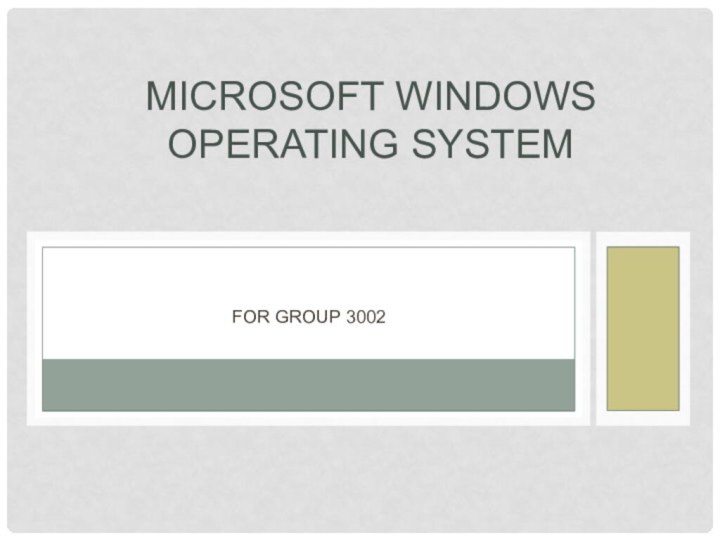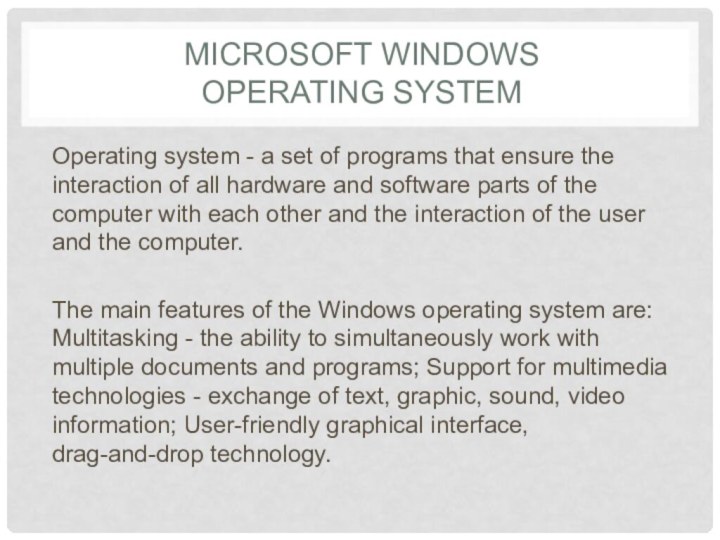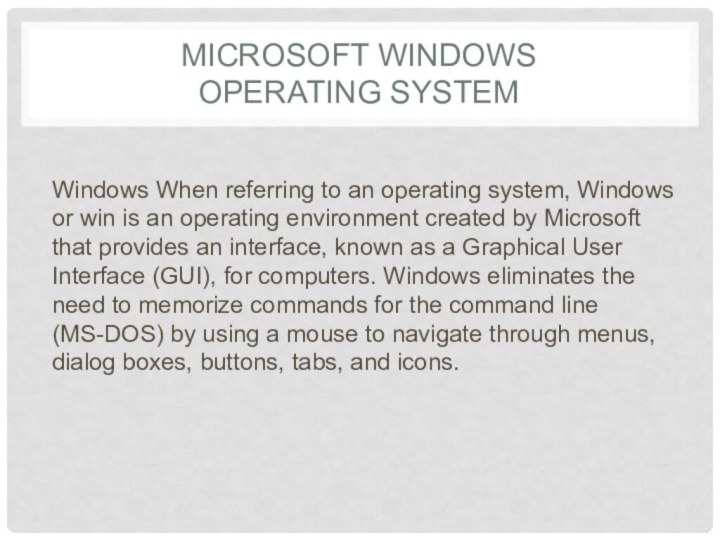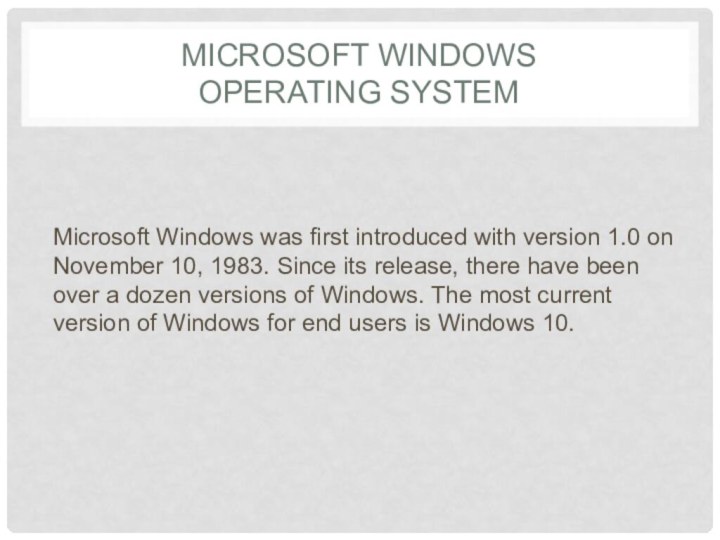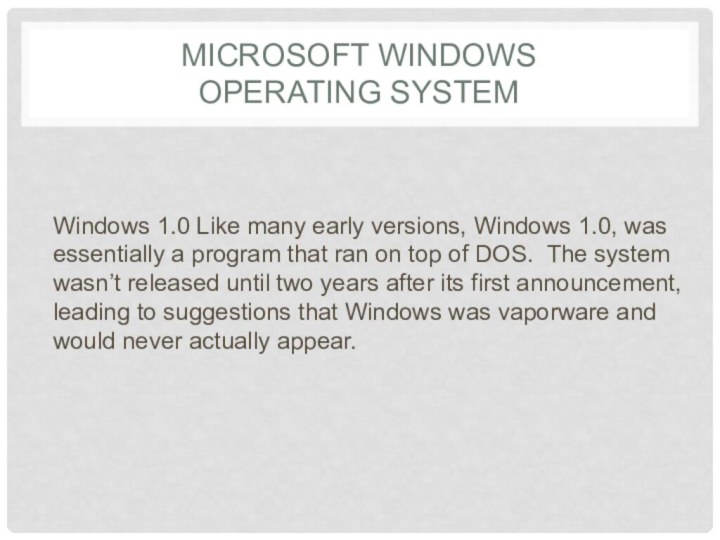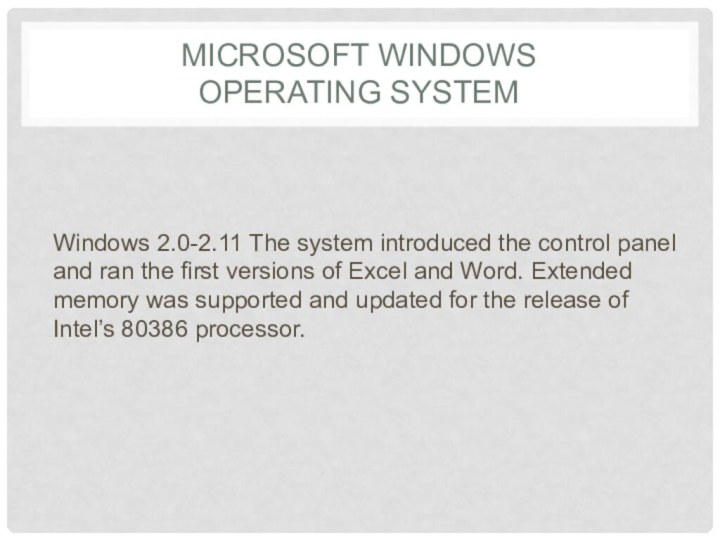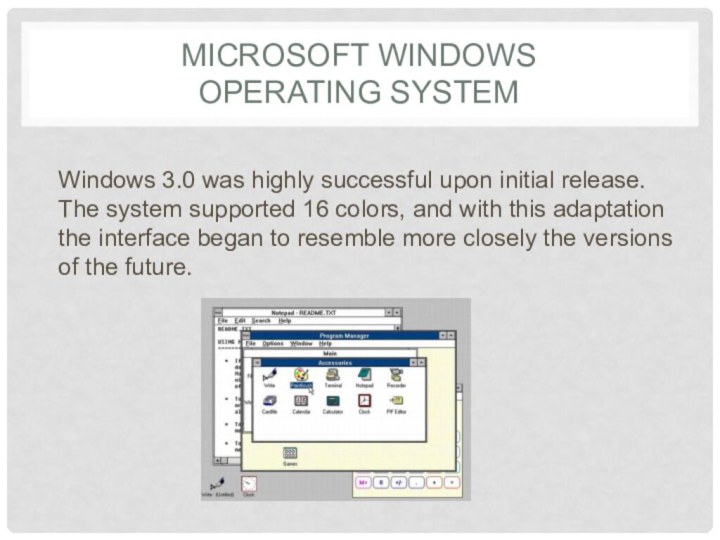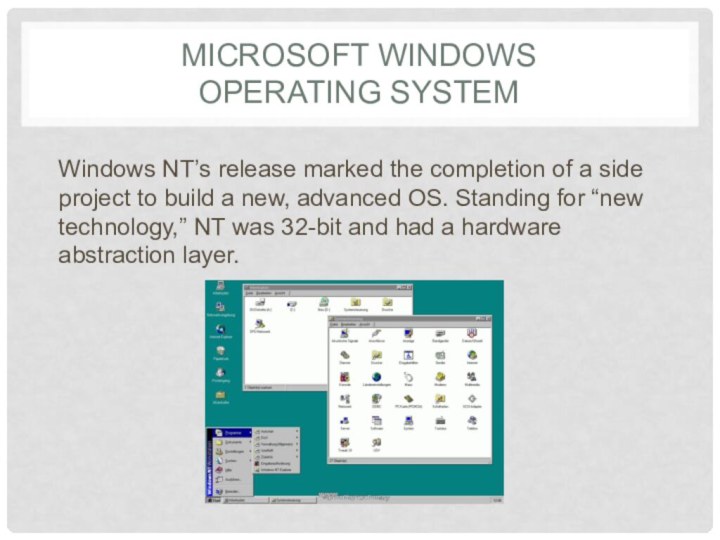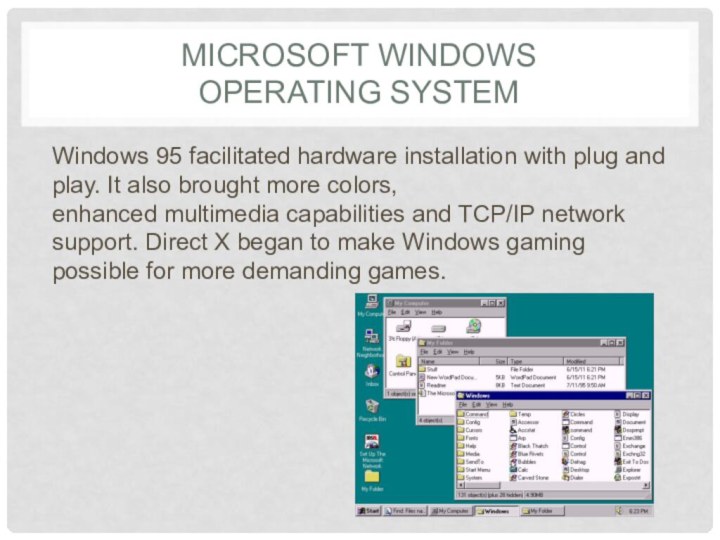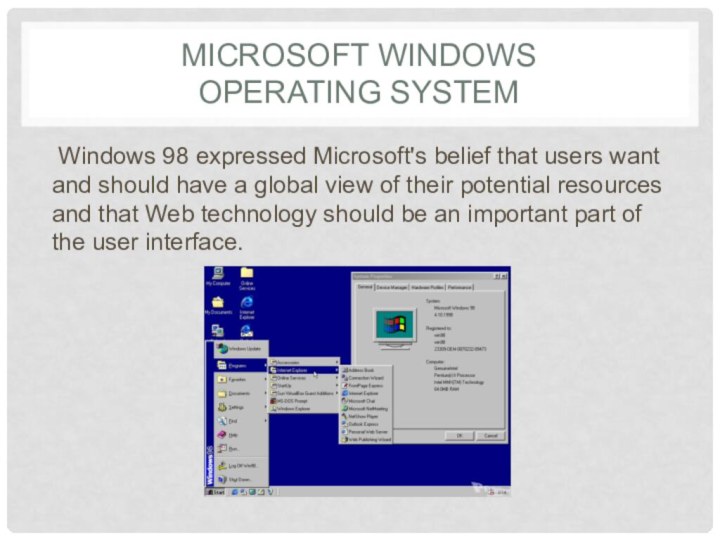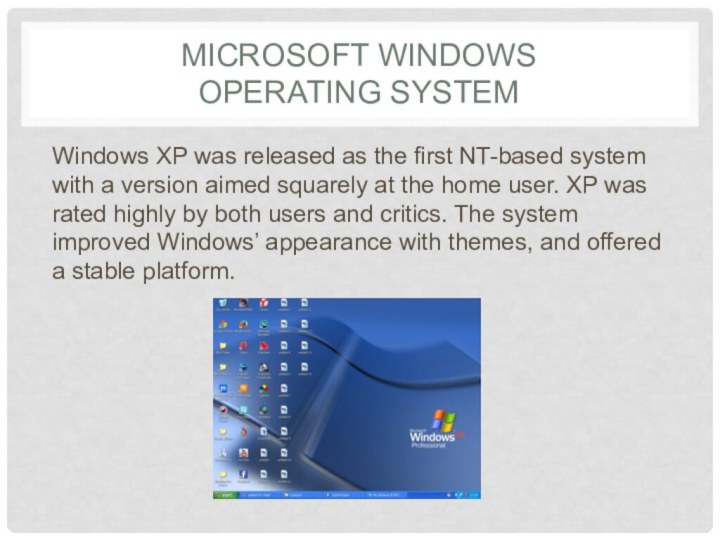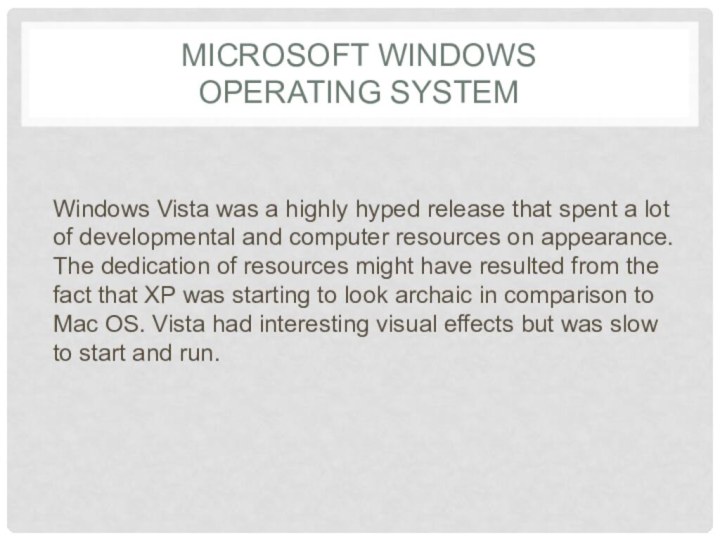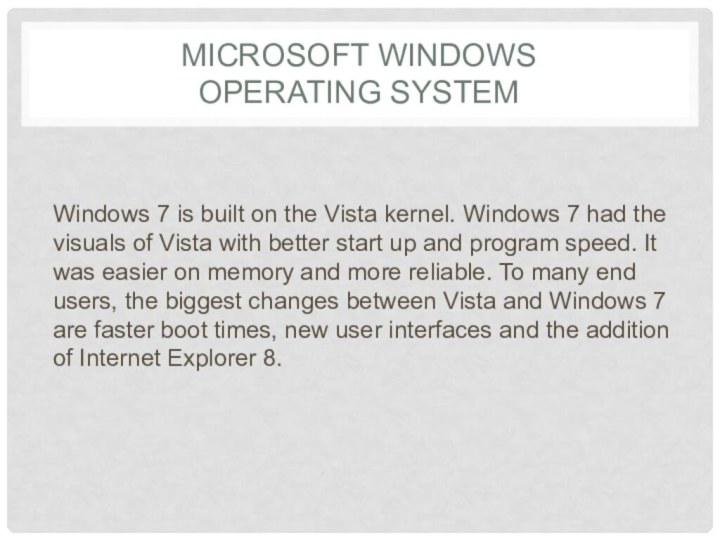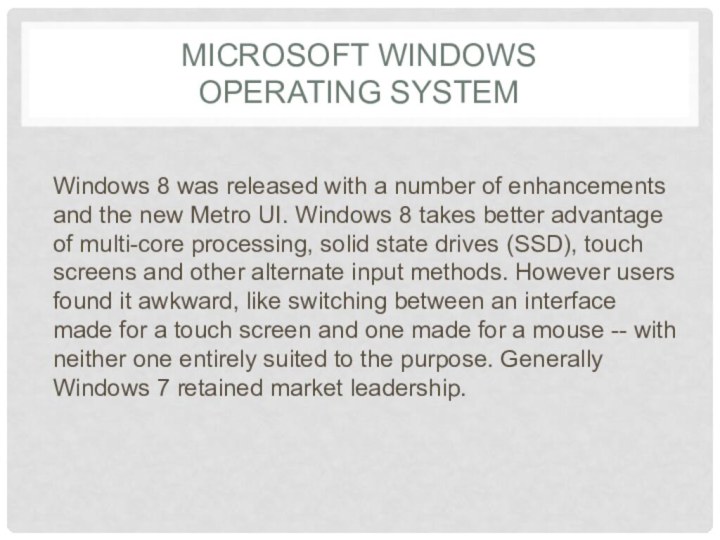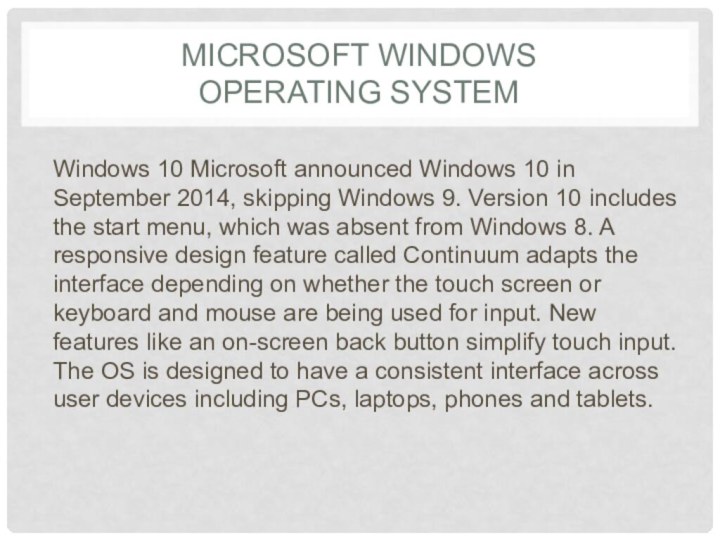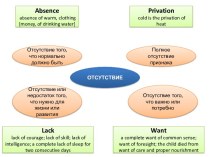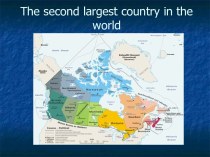Слайд 2
Microsoft Windows
Operating System
Operating system - a set
of programs that ensure the interaction of all hardware
and software parts of the computer with each other and the interaction of the user and the computer.
The main features of the Windows operating system are: Multitasking - the ability to simultaneously work with multiple documents and programs; Support for multimedia technologies - exchange of text, graphic, sound, video information; User-friendly graphical interface, drag-and-drop technology.
Слайд 3
Microsoft Windows
Operating System
Windows When referring to an
operating system, Windows or win is an operating environment
created by Microsoft that provides an interface, known as a Graphical User Interface (GUI), for computers. Windows eliminates the need to memorize commands for the command line (MS-DOS) by using a mouse to navigate through menus, dialog boxes, buttons, tabs, and icons.
Слайд 4
Microsoft Windows
Operating System
Microsoft Windows was first introduced
with version 1.0 on November 10, 1983. Since its release,
there have been over a dozen versions of Windows. The most current version of Windows for end users is Windows 10.
Слайд 5
Microsoft Windows
Operating System
Windows 1.0 Like many early
versions, Windows 1.0, was essentially a program that ran
on top of DOS. The system wasn’t released until two years after its first announcement, leading to suggestions that Windows was vaporware and would never actually appear.
Слайд 6
Microsoft Windows
Operating System
Windows 2.0-2.11 The system introduced
the control panel and ran the first versions of Excel and
Word. Extended memory was supported and updated for the release of Intel’s 80386 processor.
Слайд 7
Microsoft Windows
Operating System
Windows 3.0 was highly successful
upon initial release. The system supported 16 colors, and
with this adaptation the interface began to resemble more closely the versions of the future.
Слайд 8
Microsoft Windows
Operating System
Windows NT’s release marked the
completion of a side project to build a new,
advanced OS. Standing for “new technology,” NT was 32-bit and had a hardware abstraction layer.
Слайд 9
Microsoft Windows
Operating System
Windows 95 facilitated hardware installation
with plug and play. It also brought more colors, enhanced multimedia capabilities
and TCP/IP network support. Direct X began to make Windows gaming possible for more demanding games.
Слайд 10
Microsoft Windows
Operating System
Windows 98 expressed Microsoft's belief
that users want and should have a global view
of their potential resources and that Web technology should be an important part of the user interface.
Слайд 11
Microsoft Windows
Operating System
Windows XP was released as
the first NT-based system with a version aimed squarely
at the home user. XP was rated highly by both users and critics. The system improved Windows’ appearance with themes, and offered a stable platform.
Слайд 12
Microsoft Windows
Operating System
Windows Vista was a highly
hyped release that spent a lot of developmental and
computer resources on appearance. The dedication of resources might have resulted from the fact that XP was starting to look archaic in comparison to Mac OS. Vista had interesting visual effects but was slow to start and run.
Слайд 13
Microsoft Windows
Operating System
Windows 7 is built on
the Vista kernel. Windows 7 had the visuals of Vista with
better start up and program speed. It was easier on memory and more reliable. To many end users, the biggest changes between Vista and Windows 7 are faster boot times, new user interfaces and the addition of Internet Explorer 8.
Слайд 14
Microsoft Windows
Operating System
Windows 8 was released with
a number of enhancements and the new Metro UI. Windows 8
takes better advantage of multi-core processing, solid state drives (SSD), touch screens and other alternate input methods. However users found it awkward, like switching between an interface made for a touch screen and one made for a mouse -- with neither one entirely suited to the purpose. Generally Windows 7 retained market leadership.
